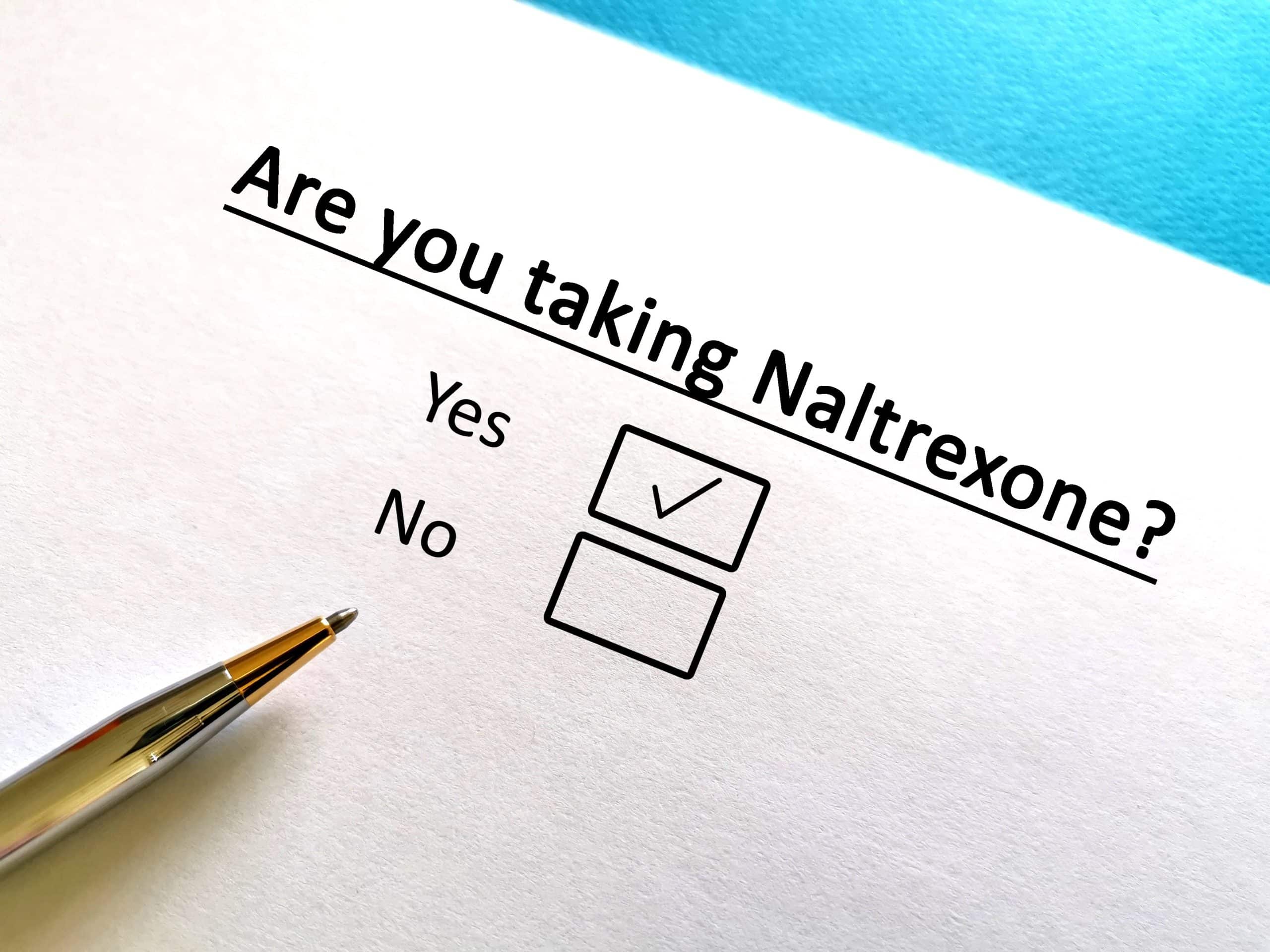Narcan is not used for alcohol. It is the brand name for the drug Naloxone, a drug used to treat opioid overdoses. Narcan is sometimes confused with Naltrexone (Vivitrol), a drug used in alcohol treatment, to avert cravings and aid in the recovery process.
Naltrexone alcohol treatment helps people suffering from alcohol use disorder. Drinking on naltrexone inhibits the effects of alcohol, making it less desirable to drink.
Our Narcan for Alcohol guide will explain how does naltrexone work, plus much more.
What Is Narcan?
Narcan, which contains an active drug called Naloxone, is a nasal spray that is used for opiate overdoses. It is classified as what is called an opioid antagonist. Narcan for alcohol is not used. It’s Naltrexone that’s used to help people with alcohol use disorder.
Narcan can be used for any aged individual that is experiencing an opiate overdose. Each bottle contains one dose of the medication that can be sprayed into the nostrils.
Once administering the medication it is important to still call 911, even if the person is alert after the Narcan has been taken.
Narcan begins to work right away and the individual receiving it should become alert in as little as 2-3 minutes after the first dose.
There are situations in which multiple doses of Narcan should be administered, which is one of the reasons it is important to contact 911 as soon as possible if you believe someone is experiencing an opiate overdose.
Symptoms of an opiate overdose include:
- Pinpoint pupils
- Unconsciousness
- Unresponsiveness
- Awake, but unable to talk
- Body is very limp
- Face is pale or clammy
- Blue lips, fingernails, and skin
- For lighter skinned people, the skin tone turns bluish purple; for darker skinned people, the skin tone turns grayish or ashen
- Breathing is shallow, irregular, or has stopped
- Pulse is slow, erratic or not there at all
- Choking sounds or a snore-like gurgling noise (also known as the “death-rattle”)
- Vomiting
Can Narcan Be Used for Alcohol?
As stated above Narcan and alcohol don’t go together. Narcan is specifically made for opiate overdoses and only works for opioid substances such as heroin, percocet, fentanyl, and codeine.
An alcohol overdose, commonly known as alcohol poisoning, should be treated in a hospital setting. Poisoning occurs when the blood alcohol levels are so high that the liver cannot remove the toxins from alcohol quick enough. Alcohol is a depressant substance, which means that if too much of it is consumed it could lead to serious medical problems.
Poisoning from taking too much alcohol can slow down and lower breathing, heart rate, blood pressure, and body temperature. If these vital bodily functions are impared by alcohol it can be life threatening. If you believe you or someone you know is experiencing alcohol poisoning it is extremely important to seek emergency medical care as soon as possible.
What Is Naltrexone?
Naltrexone is a medication initially used to treat opioid addiction, such as heroin addiction.
Naltrexone is now used for alcohol use disorder treatment. While Narcan alcohol addiction is not suitable, Naltrexone is. Naltrexone suppresses the euphoric and pleasurable sensations that alcohol produces. This effect can help reduce the consumption of alcohol and curb cravings.
How Does Naltrexone Differ From Narcan For Alcohol Treatment?
Narcan is specifically and only used to reverse opioid overdoses and therefore is a very different medication then Naltrexone.
Narcan would only be administered to an individual if they took too much of an opiate, for example heroin or percocet.
If the individual begins to exhibit the signs of an overdose, then Narcan would be administered in order to avert the overdose and save the person’s life.
Naltrexone, on the other hand, is used to minimize the euphoric effects of both opiates and alcohol. Through the mechanisms of Naltrexone, individuals are less likely to continue abusing opiates and alcohol.
Naltrexone also has the ability to reduce cravings which helps give people a better chance of maintaining long-term recovery.
What Are The Treatment Options For Alcoholism?
Alcoholism can be treated in a number of different ways, normally a combination of therapeutic methods and medication is the most effective way to treat alcohol addiction.
Medications can help reduce cravings, minimize the amount of alcohol a person can consume, and there are a number of medications that can be used to treat alcoholism including:
- Naltrexone
- Acamprosate
- Disulfiram
There are also a number of therapeutic methods that should be incorporated into a treatment plan for those suffering from alcoholism.
It is important to address the underlying causes of an individual’s addiction. This is done through a number of different forms of therapy that can address trauma, false belief systems, low self esteem, and other factors that can lead to substance abuse.
Some forms of therapy at Birmingham Recovery Center include:
- Cognitive Behavioral Therapy
- Dialectical Behavioral Therapy
- Family Therapy
- Group Therapy
- Holistic Therapy
Alcohol Treatment In Birmingham, Alabama
Alcoholism requires professional treatment from a licensed addiction treatment facility. Alcohol addiction is a serious disease that requires a comprehensive and well rounded treatment plan. A combination of medication and therapeutic services is usually the best way to treat addiction. At Birmingham Recovery Center we offer a multitude of services in order to properly treat each one of our clients. We create individualized treatment plans for clients. Similarly, we offer a number of different levels of care including partial hospitalization, intensive outpatient, and outpatient services. Reach out to our admissions team if you or your loved one is suffering from alcoholism and begin your recovery journey today.
